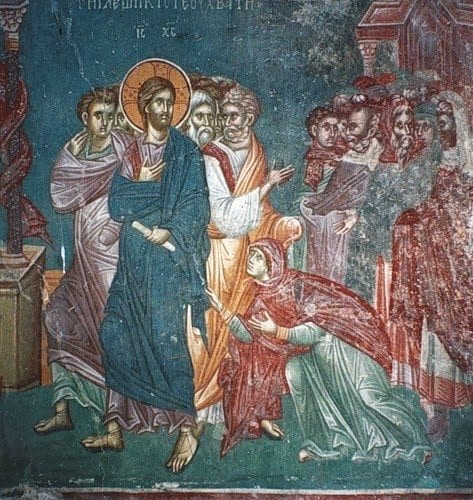Skip to content
Who do you say that I am?Nicholas Athanasou2021-06-26T17:36:39+10:00
Who do you say that I am?
Who do you say that I am? There is no dispute about the historical figure of Jesus of Nazareth. The most important question every human is challenged with is who is Jesus: man, prophet, or God?
In each of the four Gospels, an important climax is reached when Jesus asks His followers, and by extension all mankind, “Who do you say that I am?” (Matthew 16:15).
For the Orthodox, the Word of God is not a book. It is this Person, the crucified, resurrected and glorified Jesus Christ. The New Testament gives us the key to understanding Jesus. Yet this revelation of Christ commences even earlier, in the Old Testament. Saints Paul, Peter and Stephen in the book of Acts preached of Jesus as the fulfilment of the Old Testament. “I am” (Genesis 1:8) is revealed as “the Alpha and the Omega, the Beginning and the End, the First and the Last” the origin and destiny of all things (Revelation 1:8, 22:13).
The more we read the scriptures, the more our relationship with God becomes illumined. Our Lord Jesus speaks to us directly. We come to personally know who He is.
St Seraphim of Sarov said that we have to swim in the scriptures, like a fish in water. Once immersed, we develop a scriptural mindset. Without this understanding, everything is distorted.
So how should we read the scriptures? It is helpful to begin reading the Bible with the Gospels of Matthew, Mark and Luke. John’s Gospel is more suitable for us when we have accepted Christ. We can read entire chapters, Gospels, or Epistles, but for us to profit even more we need to ensure that we are consistent and spend time to carefully read a short passage every day. At times when we do not feel like reading we should not excuse ourselves. Rather, we should remind ourselves to not approach reading out of a sense of “duty”, but because we are hungry!
The parts we understand, we should try to put into practice into our life: do unto others as you would have them do unto you; give without expecting anything in return; and don’t judge others. The parts we don’t understand will work in our heart with the aid of the Holy Spirit. Make a note and later ask someone more spiritually advanced.
We need to read the entire New Testament several times, not just the parts we like. Critical study is immensely important in understanding. Understanding comes when we approach Christ with an open mind and commune with Him in the Eucharist. In the Gospel of Luke, the risen Christ appears to Cleopas and Luke, walking to Emmaus. Jesus said, “O foolish ones, slow of heart to believe all that the prophets have spoken! Was it not necessary that the Christ should suffer these things and enter into His glory?’ Beginning with Moses and all the prophets, He began to interpret the scriptures Himself” (Luke 24:25-27). Then He breaks bread with them (eucharistic image). Finally, the disciples understand, “Did not our hearts burn within us while He talked to us on the road while He opened to us the scriptures” (Luke 24: 32).
Jesus Christ is our life. Everything starts and finishes with Him. How will we answer Christ when He asks each of us, “Who do you say that I am?”
Source: Lychnos October-November 2020
Page load link

